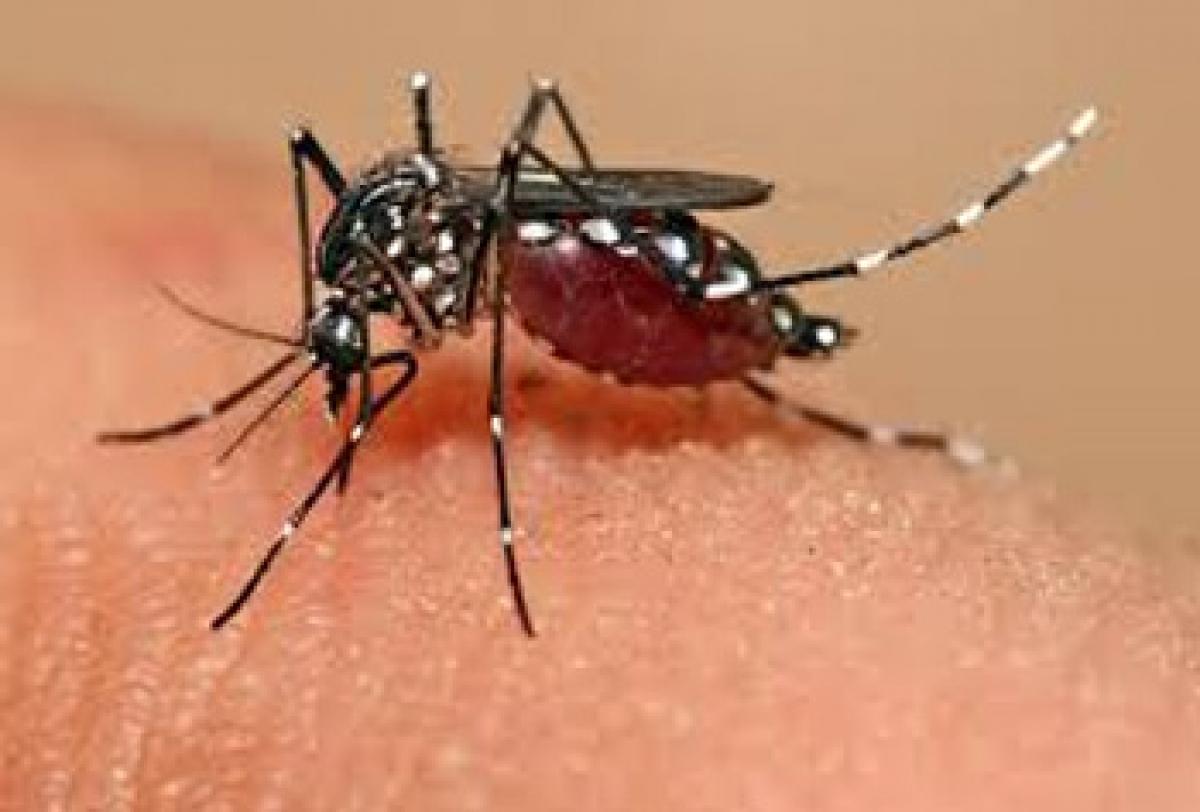Live
- CBI busts call centre that duped foreigners
- Pvt member’s resolution to regulate airfare
- SC extends interim stay on directives issued to 3 States
- BJP Girijan Morcha says govt ignored Chevella Girijan Declaration
- MoS (Home) Bandi Sanjay on a 2-day visit to State
- Women given a raw deal in TG Budget: BJP Mahila Morcha
- Niti Aayog Meeting: BJP dubs two CMs’ boycott move ‘politically motivated’
- Rashtrapati Nilayam celebrates Kargil Vijay Diwas
- Chandrababu to Highlight AP's Vision as part of Vikasit Bharat-2047 at NITI Aayog Meeting
- Modi govt strengthening country’s defence in spirit of Kargil: Kishan Reddy
Just In

Zika virus belongs to the flavi virus family. It is closely related to dengue and chikungunya virus. It can be transmitted by the same mosquito that transmits the dengue virus. The virus was first isolated in Rhesus monkey in the Zika forest of Uganda in 1947, which is how it got its name.
Zika virus belongs to the flavi virus family. It is closely related to dengue and chikungunya virus. It can be transmitted by the same mosquito that transmits the dengue virus. The virus was first isolated in Rhesus monkey in the Zika forest of Uganda in 1947, which is how it got its name.
Human infections were identified in the 1950s and the disease is endemic in parts of Africa and Asia. An outbreak of the Zika virus infection occurred on Yap Island in the Federated States of Micronesia in 2007
Transmission
Zika virus is primarily transmitted to humans through bites from Aedes mosquitos. Rarely, Zika virus can be transmitted via blood transfusion, perinatal transmission and sexual transmission. The incubation period (time from exposure to symptoms) is typically between two and seven days.
Signs and symptoms
Not all people who are infected have symptoms. About one in five people develop symptoms. The infection is characterised by low grade fever, accompanied by a rash. Other symptoms include muscle pain, joint pain with possible swelling, headache, pain behind the eyes and conjunctivitis. Symptoms are often mild, and most people recover without severe complications. Cases of Guillain-Barre disease have been reported.
Investigations are ongoing to assess the possibility of microcephaly (small brain) in babies due to maternal infection with Zika virus. Death due to Zika virus is rare. The virus usually remains in the blood of an infected person for a few days but it can be found longer in some people.
Treatment
There is no vaccine or specific antiviral treatment for Zika virus infection. Treatment is to control symptoms that includes resting, intake of fluids to prevent dehydration, intake of pain relievers however, Aspirin and NSAIDs are not advisable.
Prevention
Prevention and control relies on reducing the breeding of mosquitoes and reducing contact between mosquitoes and people. Basic precautions for protection from mosquito bites should be taken by people traveling to high risk areas. These include use of repellents, wearing light colored, long sleeved shirts and pants and ensuring rooms are fitted with screens to prevent mosquitoes from entering.
If you have Zika, avoid mosquito bites for the first week of your illness. During the first week of infection, Zika virus can be found in the blood and passed from an infected person to another mosquito through mosquito bites. An infected mosquito can then spread the virus to other people.
Travel advisory
The CDC recommends that pregnant women in any trimester should consider postponing travel to an area where Zika virus transmission is ongoing. If a pregnant woman is considering travel to one of these areas, she should talk to her healthcare provider.
If she travels, she should strictly follow steps to avoid mosquito bites during the trip. Specific areas where Zika virus transmission is ongoing are often difficult to determine and are likely to change over time.

© 2024 Hyderabad Media House Limited/The Hans India. All rights reserved. Powered by hocalwire.com







